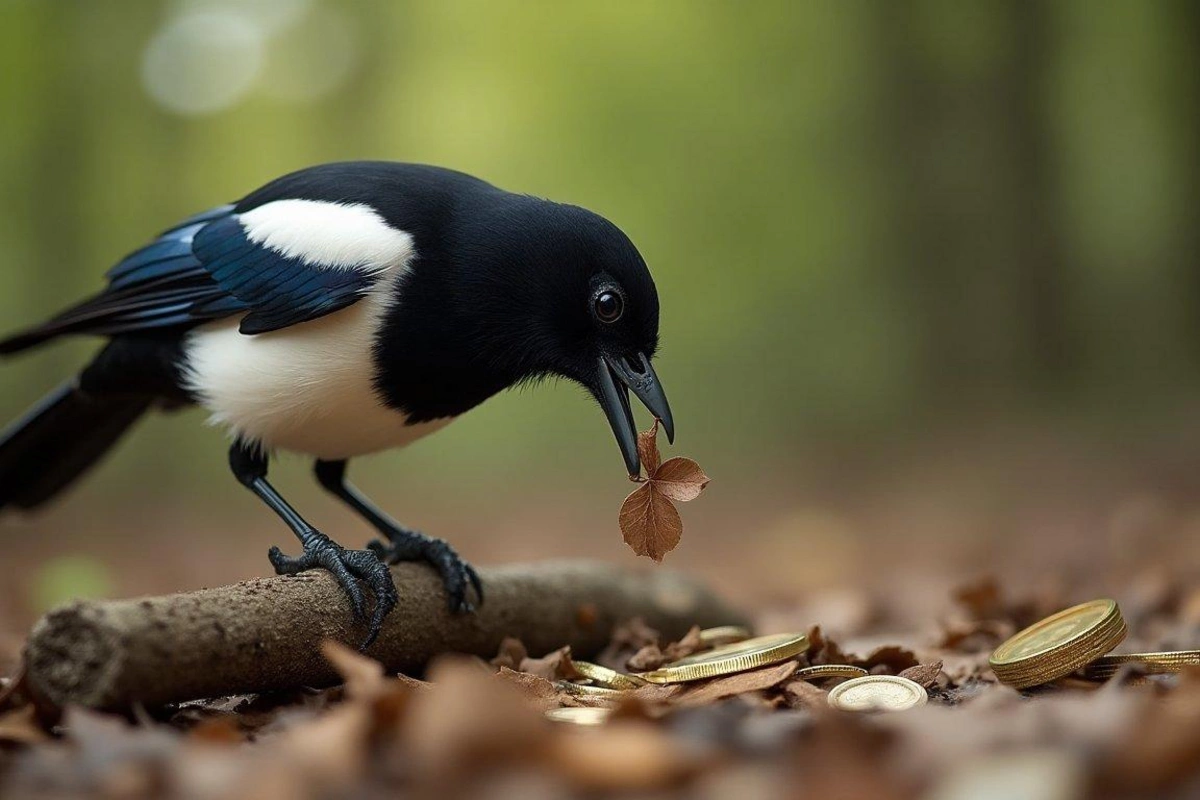Magpie: Stealing shiny things is a myth. What the feathered kleptomaniac actually steals

Researchers from the Center for Animal Behavior Studies have refuted the widespread belief that magpies steal shiny jewelry and coins. The results of years of observations showed that these birds exhibit caution and even avoidance of bright metallic objects.
Scientific data versus folk beliefs
A team of biologists led by Dr. Tessa Jelly from the University of Exeter conducted a series of experiments with 64 magpies between 2019 and 2024. The birds were offered various items: aluminum rings, silver coins, colored plastic parts, and pieces of foil.
"Only 37% of magpies approached shiny objects, while 89% of individuals showed interest in matte items," Jelly told Animal Behaviour magazine.
What really attracts magpies
Research has shown that magpies prefer to collect:
- Twigs and sticks for nest building
- Colored threads and fabric scraps
- Pieces of bark and moss
- Food remnants
Ornithologist Mark Coward from the Royal Society for the Protection of Birds noted: "Magpies are practical birds. They only take what might be useful for survival or reproduction."
Origin of the myth
The belief about kleptomaniac magpies emerged in the 18th century and was popularized through literary works, including Rossini's 1817 opera "The Thieving Magpie."
Professor John Marzluff from the University of Washington explains: "People noticed the disappearance of small objects near magpie habitats and drew false conclusions about the cause-and-effect relationship."
Real behavior of magpies
Modern research using radio tags and video surveillance has shown that magpies:
- Explore new objects in their territory out of curiosity
- Move objects no more than 10-15 meters
- Quickly lose interest in inedible things
- Focus on finding food and building materials
Impact on birds' reputation
The theft myth has negatively affected people's attitudes toward magpies. In some regions of Europe, population control programs for these birds still operate based on false perceptions of their behavior.
"Magpies play an important role in the ecosystem, controlling insect populations and dispersing plant seeds," emphasizes ecologist Anna Wittenberg from the Max Planck Institute of Ornithology.
Researchers call for a reconsideration of attitudes toward these highly intelligent birds and an end to unjustified persecution.
Similar News
What wisdom teeth actually tell us: amazing facts
Wisdom teeth are among the most mysterious and problematic teeth in the human body. These third molars appear last, often cause discomfort, and require removal....




 Azərbaycanca
Azərbaycanca  По-русски
По-русски  English
English 






